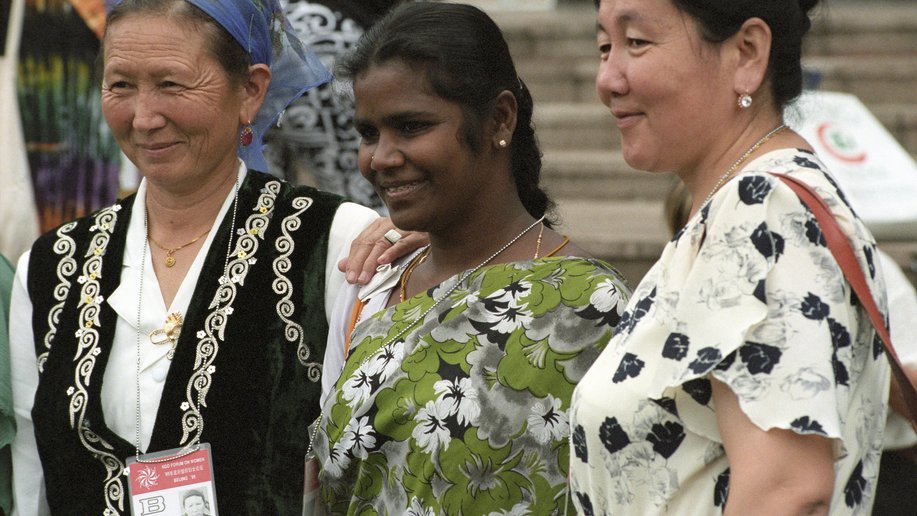Gender Justice
For an economy that enables equality and inclusivity in all aspects of life

Gender justice is a fundamental pillar of building a Rights-Based Economy. It requires us to question and dismantle the systems and structures that perpetuate gender inequality and discrimination. The consequences of austerity and privatization, shifting money away from public services such as health and education, have exacerbated gender imbalances and the feminization of poverty. The gap in public services is largely subsidized by unpaid care work, which disproportionately falls on women and girls.
We need gender equality in the design and implementation of policies, especially in fiscal systems to eliminate explicit and implicit biases. The current neoliberal and orthodox fiscal governance and policy ‘road map’ has generated huge damage by the unequal distribution of resources and weak standards of transparency and accountability.
Our gender justice work takes an intersectional critical look at the policies, institutions, and mechanisms that need to change to create a truly equitable world. Gender justice can only be achieved by acknowledging how other forms of discrimination overlap with and exacerbate gender discrimination. This involves advocating for fiscal policies that address the economic disparities faced by women, promoting gender-transformative public services, and ensuring that women's rights are central to economic decision-making processes. It also involves engaging with new definitions of gross domestic product (GDP) that consider care work.
Our approach to gender justice is rooted in a holistic understanding of human rights. It demands the dismantling of discriminatory practices and the creation of environments where everyone, regardless of gender, can thrive. By addressing gender inequality, we are also tackling broader social justice and human rights issues, as these are deeply interconnected.
Highlights
Decoding Gender Injustice
Gender injustice is built into global economic rules, from tax systems that overburden women to austerity cuts that dismantle care services, all rooted in histories of colonialism, neoliberalism and patriarchy. Decoding Gender Injustice equips advocates with rights-based tools and data to expose how policies on debt, taxation, trade and monetary policy drive inequality and how to challenge them.
A progressive, feminist approach to taxation
This advocacy brief, developed in collaboration with WEDO, the Financial Transparency Coalition, and Shared Planet, explores how taxation can be progressive, feminist, environmental, and decolonial—advancing justice for people and the planet.
Charting the path beyond Beijing+30: reflections on CSW69
As the world marks thirty years since the Beijing Declaration, CSW69 became a critical juncture to ask: will states take the bold steps needed to truly fulfill the promise of gender equality—or settle for symbolic reaffirmations?
Taxation for gender-transformative organization of care
Originally published by the Global Alliance for Tax Justice, this blog explores how progressive taxation can advance a gender-transformative care economy—part of a series on the 2025 Global Days of Action on Tax Justice for Women’s Rights.












